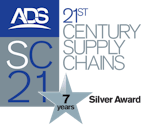Related Specifications
- ASTM B637-18 UNS N07718
- NACE MR0175/ISO 15156-3/API6A
Properties
Chemical Composition
Alloy 718
ASTM B637-18 UNS N07718
| Chemical Element | % Present |
|---|---|
Nickel (Ni) | 50.00 - 55.00 |
Chromium (Cr) | 17.00 - 21.00 |
Molybdenum (Mo) | 2.80 - 3.30 |
Copper (Cu) | 0.00 - 0.30 |
Aluminium (Al) | 0.20 - 0.80 |
Boron (B) | 0.00 - 0.01 |
Carbon (C) | 0.00 - 0.08 |
Cobalt (Co) | 0.00 - 1.00 |
Manganese (Mn) | 0.00 - 0.35 |
Phosphorous (P) | 0.00 - 0.02 |
Sulphur (S) | 0.00 - 0.02 |
Titanium (Ti) | 0.65 - 1.15 |
Silicon (Si) | 0.00 - 0.35 |
Iron (Fe) | Balance |
Mechanical Properties
Rod & Bar - Solution Annealed & Hardened
ASTM B637-18 UNS N07718
| Mechanical Property | Value |
|---|---|
Proof Stress | 1034 Min MPa |
Tensile Strength | 1275 Min MPa |
Elongation A50 mm | 12 Min % |
Hardness Brinell | 331 Min HB |
Hardness Rockwell C | 36 Min HRC |
General Physical Properties
| Physical Property | Value |
|---|---|
Density | 8.26 g/cm³ |
Melting Point | 1270-1340 °C |
Thermal Expansion | 14.1 x 10-6/K |
Modulus of Elasticity | 203 GPa |
Thermal Conductivity | 11.1 W/m.K |
Applications
- Components for offfshore drilling equipment
- Pump shafts
- Specialist valves
- Choke stems
- Fasteners
- Gas turbine engine parts
- Liquid fuel rocket motor components
- Springs, fasteners
- Cryogenic tanks
- Tooling
- Aerospace components
- Nuclear plant containment vessels
- Wellhead components
Characteristics
- Good processing properties in the solution annealed condition
- Good strength/ductility properties from sub-zero temperatures to over 750°C
- Goood mechanical short and long-term properties, and excellent fatigue strength in the age hardened condition
- Excellent mechanical properties at low temperatures
- Excellent resistance to stress corrosion cracking and pitting in chloride-containing media
- Excellent resistance to stress corrosion cracking and sulphide stress cracking in sour (H2S-containing) oilfield environments
- Non-magnetic and spark resistant
- Excellent creep-rupture strength at temperatures up to 700◦C (1300◦F)
- Outstanding weldability
Additional Information
Heat Treatment
The following heat treatment should be used to obtain the best combination of tensile properties and stress rupture properties:
- 1 hr 1750°F to 1800°F (954 to 982°C) air cool + 8hr 1325°F (718°C) cool 100°F /hr to 1150°F (56 °C/hr to 621°C), hold 8 hrs and air cool.
To obtain the best room temperature and cryogenic tensile properties, the following heat treatment should be used:
- 1 to 2 hr 1950°F (1066°C), air cool + 8 hr 1325°F (718°C) cool 100°F/hr to 1150°F (56°C/hr to 621°C), hold 8 hr and air cool.
Workability
Hot Working
Hot-working is carried out using a 2050°F (1121°C) maximum furnace temperature. Hot-cold working in the range 1700/1850°F (927/1010°C) will improve the strength of the forging if the service temperature is below about 1100°F (593°C). Prolonged soaking at the forging temperature is not desirable. The material should be given uniform reductions to avoid the formation of duplex grain structures.
Machining
The alloy can be readily machined in either the annealed or the age-hardened condition. The age-hardened condition gives better chip action on chip breaker tools and produces a better finish. The annealed condition will give a slightly longer tool life.
Welding
Alloy 718 can be welded in either the annealed or the age condition. Welding in the aged condition will cause the formation of a softened heat-affected zone.
Corrosion Resistance
Alloy 718 has excellent corrosion resistance in a range of environments including sea water, HS2, CO2, elemental sulphur and chloride ions over various temperatures. It is resistant to sulphide stress cracking and is capable of passing the sulphide stress corrosion test in accordance with NACE TM 0177 Method C solution A.
Typical results:
- Critical Pitting Temperature 0-5◦C (32-41◦F) ASTM G48 Method C
- Crevice Corrosion Temperature 40-45◦C (104-113◦F) ASTM G48 Method D



